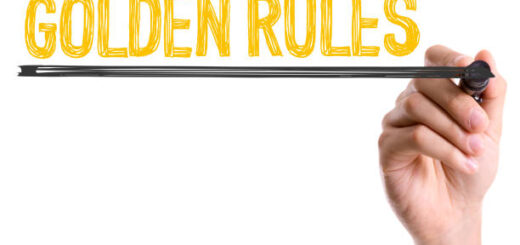Are We Dating The Same Guy
The Are We Dating the Same Guy app works as follows: A user posts a screenshot from an online dating profile and asks, “Any tea?” Other members respond by sharing what they know about him: first-hand experiences, stories of how friends matched, screenshots of conversations, etc. A post can be a warning for all members. They are usually anonymous and carry trigger warnings. These are hard to read and detail instances of coercion.
Women can crowdsource their safety by collecting these red flags. In a world with almost 2 million users of Tinder alone in the UK, having a community that has your back is crucial. It feels great to help protect so many women,” says an anonymous moderator from the London group.
But in dating discourse, red flag definitions can vary dramatically. Your interpretation of a date can also differ. Andre, a 27-year-old Londoner who uses Tinder and Bumble, is an example of a dater whose identity has been changed for privacy reasons. Three different friends alerted him to a posting about him on the city’s Facebook group. He claims that his date told him that he was pushy.
He tells VICE that he knew he was part of the group because a number of sources had told him. “And obviously, her side does not match mine.” After a miscommunication, I heard from girls that I grew up around that I was a creep. “I don’t believe these groups are helpful for anyone.”
Bambi, who is a member in London of the London group and also a member in Italy of the same group, says that the group assists women in vetting potential partners. She explains that men often take advantage of women’s inability, to be honest with one another and continue to do this to several girls without being held responsible.
The London moderator acknowledges that running a group is a complex task. Posts can range from “Is my boyfriend cheating me?” to serious allegations such as financial fraud, sexual abuse, and stalking.
She says, “I have been creating training materials to educate more women about how we can protect groups. But some of it is extremely nuanced.” There are safety, ethical, and legal concerns. “Posting a man’s details increases the chances that the message will reach him.”
Social media can be used as a platform for public persecution as well as for social change. The nature of Are We Dating The Same Guy means that no one can defend themselves when someone posts about them. A woman can’t corroborate the story she tells unless other members confirm it.
Some members question the motives behind those who share their traumatizing experiences. Jessie, 32, was skeptical when she read a post in a US-based group about a guy who had been “super charismatic.”
She tells me, “I thought he was a man with a good head.” The next day, I saw his photo while scrolling through Facebook. Someone posted a message calling him a cheater and an abuser and accusing him of blackmail and violence. It was a little scary because I didn’t notice anything on my first date. I thought I should have taken that post with a pinch of salt at first.
Jessie was unsure if she should continue seeing the man – or not – until someone noticed her comment under the original message. They sent her a message directly with additional information.
“[This person] said she was online to warn women of this guy… I’m glad I wasn’t a victim. I could have easily been. We used to date people who had mutual friends so that someone could verify the relationship. We’re now meeting strangers online, so we have to be on our guard.
Some people are not part of the group that shares information about men. Kay from Manchester is one of those who enjoys lurking. She tells VICE, “I’m really there for the gossip.” “I’m not a fan of the sick posts, but I enjoy reading them.”
It can have unintended consequences if you find out something bad about someone, like Kay did with a colleague she worked with. She says, “I read he was very sexually aggressive with a woman and I didn’t hear from him after that.” “I didn’t mention it to the girl’s benefit, so I stopped replying to his texts and told my partner to stop talking to him as well.”
Even in the relative safety of a closed group on Facebook, criticizing someone’s behavior can lead to dangerous situations. Members-only groups can’t prevent members from sharing screenshots or anyone from joining with a false account. London moderators even have stricter terms and conditions due to an increasing number of “moles” or “snitches” who are sharing information with men they call out.
Lola, who is a group member from London, had posted about an unpleasant experience. The man threatened and doxxed Lola. She says, “I found the group helpful but was shocked at what happened.” I was telling a friend how the group had become dark in recent months. Now, I’ve exposed myself because I was trying to help others.
Facebook groups are not the best way to make judgments. Sharing your dating experiences can help women like Jessie stay safe, while others like Kay can filter out a friend. Online Dating is not a good option for women. We are more likely to take risks when we match with strangers from outside of our communities, and there is little guarantee that they will be safe. The uncertainty that results is the reason groups like Are We Dating The Same Guy are formed.
Mairead Molloy is a relationship expert and director of Berkeley International’s global matchmaking service. Some men may be worried that they won’t be able to get away with some problematic behaviors – but the internet can cause havoc if used incorrectly.
These groups have a lot of posts that are harmless and are used to screen potential matches. However, these posts are in stark contrast with the ones about violence or harassment. Kieran, a 33-year-old man, learned about his post from friends. He says, “My friends told me about it.” “Basically, the friend of my friend’s girlfriend – who I know a little – saw me on a blog. I’m sure I have an opinion, but I don’t have any reason to be worried.”



